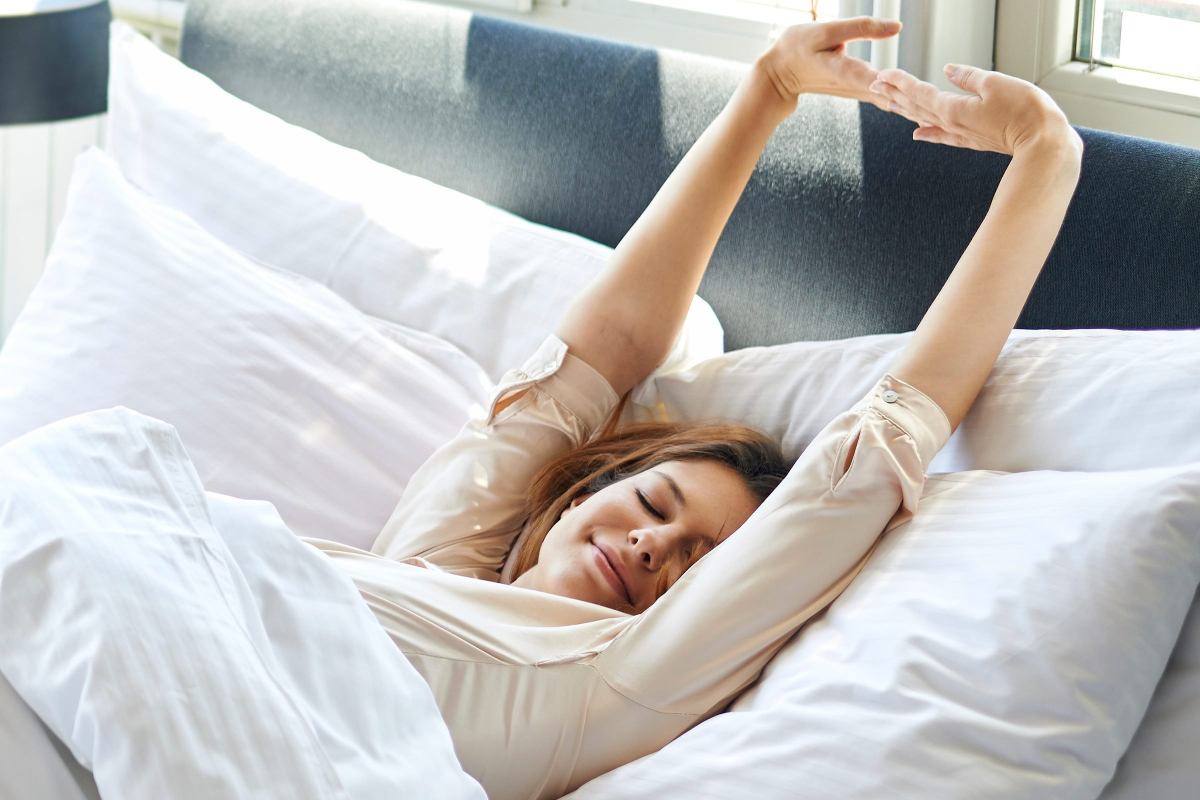

Fast life and stressful surrounding have a strong impact on our sleep cycle. In addition, as lifestyle changes, we become prone to external forces that have a direct bearing on our sleep habits.
However, we all have to deal with the difficulty of falling asleep on time.
We can’t blame everything on our changing lifestyle and must take responsibility for this messed-up sleeping practice. So, is there any problem that doesn’t have any solution? No. And this is also applicable to this sleep-related issue as well, implying we can take care of this.
Sarah Wagner at SweetIslandDreams.com reveals some of the easiest tips that can regulate our sleeping habits if we can continue following them.
Table of Contents
If we can incorporate some healthy habits into our daily routine, sleep is an obvious result. It should be a well-balanced system so that there is a place for all activities.
The food that you consume gives you energy for the day and keeps you fit. It should not be extremely spicy, disrupting your bowel system and making you uncomfortable. Vegetables and fruit intake ensure your body is healthy, and sleep will not be a problematic scene anymore.
The more you stay physically active, the better rest you will need. Your body will crave sleep naturally at the day end. So, engage yourself with any type of exercise or anything where physical strength will be used.
Think about optimistic ideas, constructive thoughts, and similar incidents so that your mind is always fresh and no stressful things can affect you negatively. After all, we are all humans, and we all can be upset or sad, but that shouldn’t be overpowering. This is relaxing for the mind, and sleeping comes easily to those who are not bogged down by depression.
Make it a compulsory activity to sit for meditation every day, at least for 15-30 minutes. This will calm your mind and body, and you can focus on what is the more important aspect of life. When you meditate, you can filter out trivial things of life. This way, you become wiser and at peace with reality.
The less caffeine you consume, the better for your body and mind. It usually doesn’t let you fall asleep quickly. So, if you already have sleeping issues, then avoid them as much as possible.
If you stay inside the bedroom all the time throughout the day, then it is going to act negatively on your sleeping pattern. You should keep the room only for sleeping. Avoid snacking and working inside the room.
Screen time should be restricted for people who have issues like insomnia. The rays are detrimental to the eyes and mind, and they are responsible for not letting you sleep. Make it a habit that you would stop watching TV or mobile at least 1 hour before your bedtime.
Avoid using tight clothes that will make you uncomfortable during sleep. Rather, go for oversized and breathable fabrics that will be airy enough. This is an important aspect that you should give special focus to.
Make sure that your bedroom lights are not too bright. If you are trying to sleep, but you can’t tolerate complete darkness, then choose lights with soothing tones. They will be easy on your sleepy eyes.
If you sleep during the day, then how can you feel tired at night. So, people who are not spontaneous at falling asleep should not indulge in daytime slumber at all. It will reduce their capacity to sleep at night.
Despite all these efforts, if you are not able to sleep, then don’t struggle in bed; wait for 15-20 minutes, and then get up. Freshen up and engage in some activities that will keep you busy for a few hours. After you are tired, you may feel sleep naturally. These things depend on one person to another, so you should keep trying and never give up.
Only after a period of time, if nothing is working out, then you might consider consulting a doctor for that matter.
In the relentless pursuit of entrepreneurial success, it’s easy to overlook the most vital asset—yourself.… Read More
A barrel sauna isn’t just a visually striking wellness addition—it’s an efficient and highly functional… Read More
Technology is an integral part of most teenagers' lives today. While devices and social media… Read More
LASIK is one of the most popular vision correction surgeries that offers you freedom from… Read More
Plumbing issues can arise unexpectedly, and understanding the costs involved is crucial for homeowners and… Read More
Skin aging is often associated with external factors like sun exposure and pollution, but inflammation… Read More